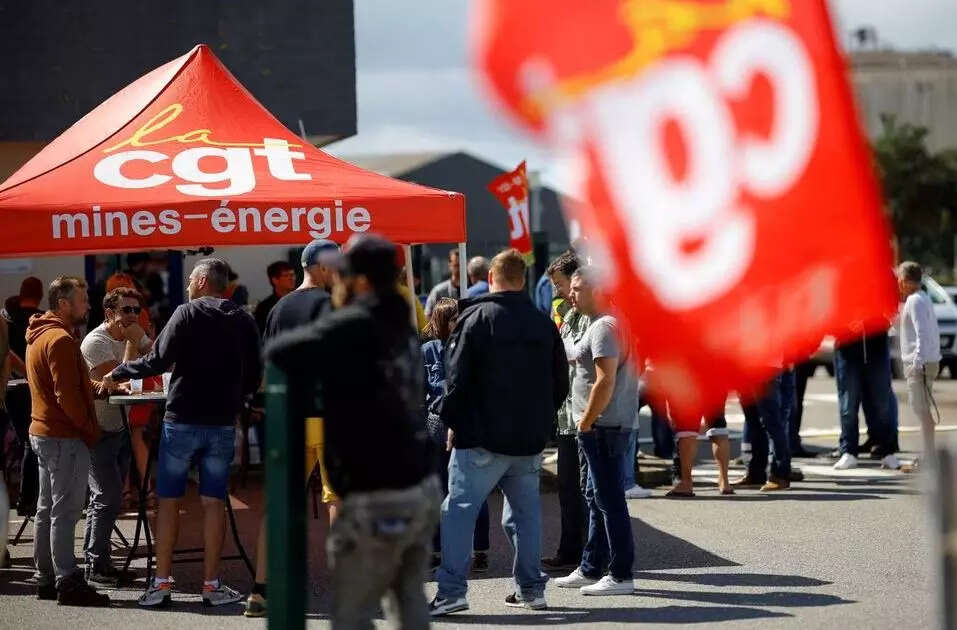
Disruptions from the strike against the French government’s planned pension overhaul stretched into a second week on Wednesday at French refineries and depots, with liquified natural gas terminals (LNG) also blocked.
A broad alliance of unions has called for an eighth day of street protests across France since mid-January to contest President Emmanuel Macron’s plans to raise the retirement age by two years to 64.
At least seven LNG ships heading to France have changed course to terminals in Britain, the Netherlands and Spain since the strike action started. The French terminals’ closure for another week would significantly hamper France’s ability to export gas to neighbouring countries.
On March 5, the day before LNG strikes started, deliveries from the four French terminals totalled about 1,165 gigawatt-hours per day (GWh/d), which shrank to 600 GWh/d on March 6 and has been at zero since Tuesday, Refinitiv data showed.
The three LNG terminals operated by Engie subsidiary Elengy are expected to remain blocked until March 21, a company spokesperson said.
The Fluxys terminal in Dunkirk, which has also been affected by the strike, is expected to remain disrupted until Friday morning.
Among the refiners, 42% of operational staff were on strike at TotalEnergies‘ facilities for the eighth day this morning, a company spokesperson said. While deliveries of refined products were partially blocked, refining operations continued.
“We are providing the necessary shipments to keep our facilities in operation,” the spokesperson added.
The Fos refinery in southern France operated by ExxonMobil‘s subsidiary Esso was also back on strike on Wednesday, a union representative told Reuters.
French power supply from nuclear, thermal and hydro power plants was also reduced by the strike, operator EDF data showed.
The country was importing about 3.3 gigawatts (GW) of electricity from neighbours at 0845 GMT, grid operator RTE data showed.
Reactor maintenance has also been blocked in recent days, with the disruptions affecting the Penly 1 reactor, where stress corrosion problems were recently detected.
The pension reform bill has passed to a joint parliamentary committee where lawmakers from the lower and upper chambers will on Wednesday seek a compromise text before a final vote in both the Senate and National Assembly on Thursday.